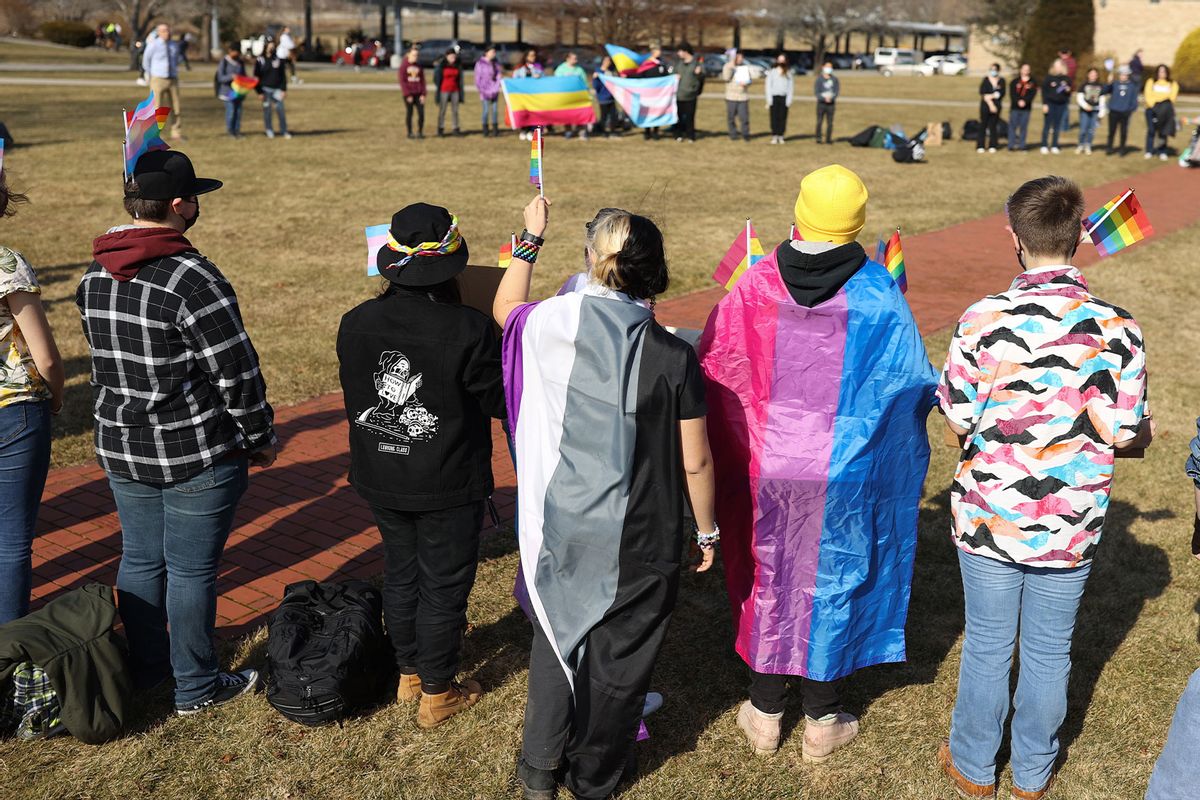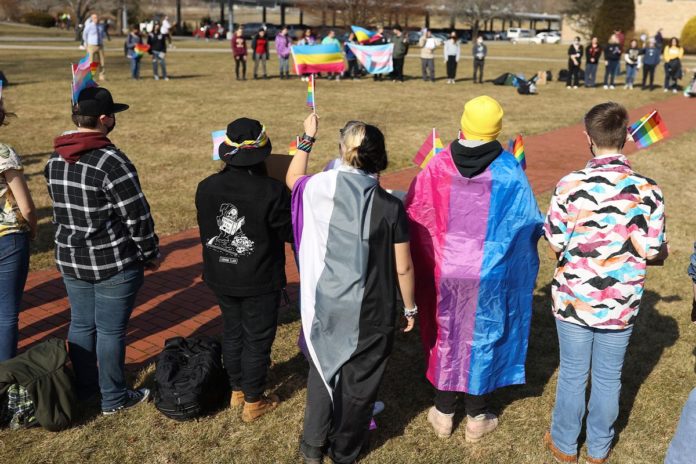
This week, Florida Gov. Ron DeSantis signed the “Parental Rights in Education” bill — otherwise known colloquially as the “Don’t Say Gay” bill — into law. While the law doesn’t explicitly ban the word “gay” in schools, it aims to withhold any discussions in the classroom about gender identity and sexual orientation for children in kindergarten through third grade.
There are some unknowns around the effects of the law, which goes into effect on July 1, as it seems to have some intentional vagueness built into it. The bill says parents can sue in court if they believe a school violates the new law — which puts Florida’s teachers in a potentially dangerous and precarious situation. While Florida teachers have said classroom discussions about sexual orientation and gender identity aren’t usually part of the curriculum, talking about a student’s family is — and many teachers have expressed concerns about what this means for students who have same-sex parents or family members.
“It makes me wonder,” one teacher told NPR. “When I talk about families in my classroom, am I going to be violating this law because the children were having discussions about what their family looks like?”
RELATED: Children’s mental health crisis is a national emergency
Moreover, children at a young age may start to feel they identity with a different gender from their sex. If this is something that can’t be supported and openly discussed at school, teachers and psychologists agree this could be very harmful to children’s mental health. As a teacher who said he won’t be silenced in this “culture war” told NPR: “I’m not teaching kids how to be gay in my classroom, but I’ll tell you what I am doing. I am trying with all my power to teach kids to be OK with who they are.”
“I don’t see the benefits . . . I’m a child psychiatrist, and I’m a gay child psychiatrist, so from both hats there, I find it to be really offensive.”
Indeed, this is one of many reasons why many child psychiatrists and LGBTQ are concerned about this potentially harmful law — particularly given that LGBTQ children are already more vulnerable to mental health problems, as sociology research has repeatedly shown.
Want more health and science stories in your inbox? Subscribe to Salon’s weekly newsletter The Vulgar Scientist.
“I worked with kids in elementary schools who, from the time they could talk, little girls who said, ‘I’m only wearing pants.’ It happens at early age, and those are the kids who continue to transition and maybe identify as the opposite sex,” Dr. Michael Enenbach, clinic director of the Child Mind Institute and president of Pride CAPA, told Salon. “Even at that age, people may not think that kindergarten to third graders really will have a handle on that, but they do.”
Enenbach stated bluntly that the law was a very “unkind” move from Florida.
“I don’t see the benefits,” Enenbach said. “I’m a child psychiatrist, and I’m a gay child psychiatrist, so from both hats there, I find it to be really offensive.”
Enenbach added this law could make some children question their identity, which can be harmful to their mental health.
According to a 2021 survey of nearly 35,000 LGBTQ youth from the Trevor Project, a nonprofit suicide prevention organization for LGBTQ youth, 42 percent of LGBTQ youth seriously considered attempting suicide in the past year. Notably, in the same survey, 94 percent of LGBTQ youth reported that recent politics negatively impacted their mental health.
“It’s important to emphasize that it’s not the identity that creates risks for suicide; the risk is created by how these youth are treated in our society – both at the individual level as well as at the macro policy and culture level,” the American Foundation for Suicide Prevention and The Trevor Project said in a joint statement. “Researchers largely agree that at least part of the reason for the elevated rates of suicidal thoughts, plans, and attempts, and poor mental health outcomes found among LGBTQ people is the social stigma, prejudice, and discrimination that contributes to the minority stress of being LGBTQ.”
The groups said they fear that the “escalation of state policies” such as the “Parental Rights in Education” bill “will only heighten and intensify experiences of rejection and discrimination and could lead to an increase in suicidal ideation.”
A joint statement signed by seven organizations of social workers and psychologists in Florida shared a similar set of concerns, according to Florida Today.
“At an early age we’re learning right from wrong, and we’re learning how society works, and a lot of kids are going to be getting very different messages about that,” Enenbach said. “And we rely on schools to talk about these issues.”
“Schools should be welcoming, safe and inclusive places for youth, families and staff members who identify as LGBTQ+,” the organizations wrote in the joint statement. “We want students to know that they are seen and valued just the way they are. We will all strive to continue to provide and advocate for affirming, supportive and safe spaces for students.”
Indeed, Enenbach said the law further stigmatizes the LGBTQ community, which is already hard to grow up in and be accepted by society. This undoubtedly will affect the mental health of LGBTQ youth in Florida.
“I think the most important thing is that at an early age we’re learning right from wrong, and we’re learning how society works, and a lot of kids are going to be getting very different messages about that,” Enenbach said. “And we rely on schools to talk about these issues,” adding that elementary school-aged kids are at a point in development when children learn about inclusion.
“And here we are with a state that’s actively saying we’re not allowed to talk about that,” Enenbach said. “That must be so confusing for younger kids.”
So, what are parents and teachers to do?
“I think teachers need to be educated by their school districts about how to handle questions,,” Enenbach said. “I think parents, depending on the age range, younger kids, it may be helpful to check in, and ask ‘How is school? How are you feeling about yourself?'”
Looking out for changes in mood and behavior is also important.
“It’s about looking for things whether school declines or home-relationships decline, if they’re, being more isolative,” Enenbach said. “It’s just a matter of knowing the warning signs and seeking out professional opinion, and knowing there are resources.”
Read more on children’s health:








